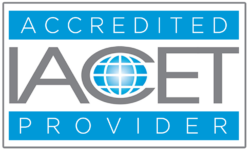John Dewey reminds us, “We learn by doing, if we reflect on what we are doing.”
Our own Carolyn McKanders often tells us, “We do not learn from our experiences; we learn from reflecting on our experiences.”
While David Sawyer, of Berea College, states, “Reflection is so critical; there can be no higher growth for individuals or for society without it. Reflection is the very process of human evolution itself.”
We also know that one of the practices of highly effective Professional Learning Communities (PLCs) is reflection. Educator, Heather Skipman Craven notes, “Reflection is the mirror into which we can be honest with ourselves, with our triumphs and defeats and continually strive to be truly outstanding educators. It is through this reflection that we can work towards a fresh start for the new school year with our goals clearly in mind.” Hmm, could it be that reflection is a pretty important component of learning?
The Institute for Excellence in Education (IEE) believes it is absolutely critical for our coaches and leadership team members to constantly model REFLECTION. One of our core beliefs states, “What adults talk about and how they engage in conversations in schools deeply impacts student success.” We try to encourage all educators and administrators to reflect on their practice.
So what might be some ways that we can consistently embed reflection into our daily practice? How might we become habitual reflectors? IEE believes that to become a habit, reflection must be an intentional, focused conversation with at least one other person, whenever possible.
Intentional Reflection
Reflection often occurs without much intention. We think about our day with students on the drive home at night; we moan inwardly about the student we failed to reach that day; and we smile at the thought of light bulbs flashing on in the brains students during the day. While these “in-the-moment” kinds of reflections serve a purpose and come as a part of being a teacher, reflection that is planned and deliberate is more effective.
Intentional reflection should be a conscious part of every PLC meeting, team meeting, staff meeting, or committee meeting. It may be that the group is looking at data and reflecting on possible reasons for the data. It may be that the group is reflecting on a recent professional learning experience to examine the impact it had on teacher practice. Intentional reflection may mean using the Cognitive Coaching Reflection Map as a more formal way to engage a colleague in deep, focused reflection of a lesson or a portion of their work.
Focused Reflection
Our learning is enhanced when reflection is focused. In other words, we structure the thinking and conversation so that we make connections and learn from our work. The Reflecting Map is a great example of focused reflection. Notice the following questions that are part of this powerful structured conversation:
- “So, how did it go?” (This might be a meeting, a PD, a lesson, or a unit.)
- “What’s telling you this?” (That the _________ went pretty well.) This question helps the teacher/educator focus in on the evidence or data that lead them to their overall assessment of the experience.
- “As you consider the outcomes, what might be some things you did that contributed to these results?” (Reflecting on what someone else might have done or might do has little impact. We need to focus on what we can control.)
- “What might be some of the thoughts/ideas you are taking away from this reflection, that will impact your actions in the future?” (This final question in the reflecting conversation map has to do with next steps.)
Reflection is a crucial part of the entire school improvement process, whether at the individual classroom level, at the building level or as an entire district. We are doomed to “have history repeat itself” without the power of reflection to direct our intentions, our attention, and our actions in more powerful and positive ways.
Please call us at 989-529-4397 or visit www.excellenceined.org for more information about using reflection as a tool for increasing learning in your educational environment.
Written by: Pat Benson, April 2013

